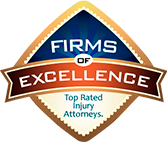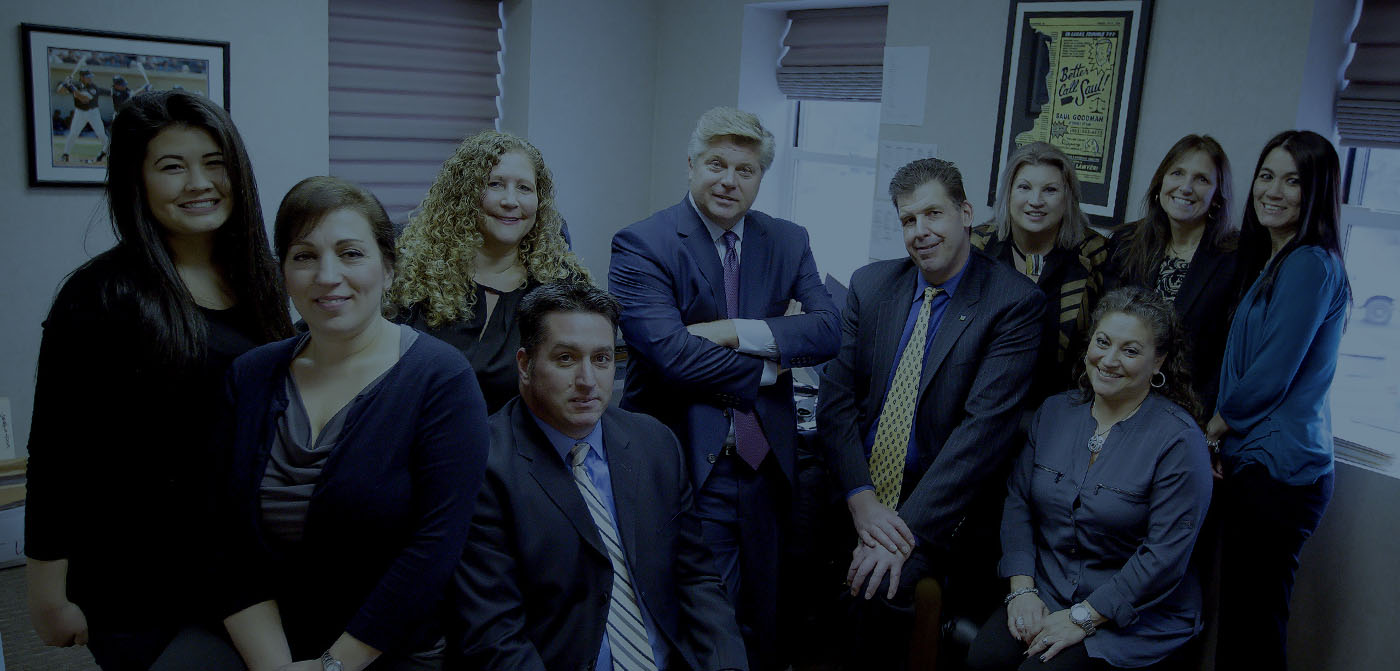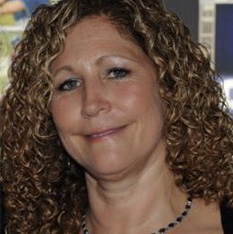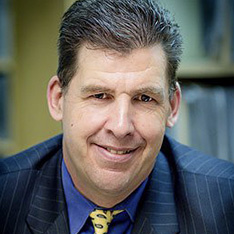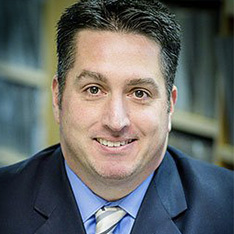According to a study done by the National Safety Council, although the overall number of car accidents in New York went down during the coronavirus quarantine, the overall fatality rate went up 14% compared to the same time last year. There were fewer accidents because people were quarantining and remaining off the road, but more people were speeding, resulting in a higher percentage of fatal accidents. With New York now in the process of reopening, it remains to be seen whether the fatality rate will also return to normal. Continue reading “Motor Vehicle Fatality Rate Increased During Coronavirus Quarantine”
Category: Car Accident
What to Keep in Your Car in Case of an Accident
Whether you own a rust bucket with 200,000 miles on it or a shiny new car that is equipped with all of the latest technology, you take a gamble every time you drive in New York City. Auto accidents and other emergencies happen all of the time. You need to prepare for it.
The best way to prepare for an emergency is to properly stock it. Here, we suggest that you keep this short list of basic items in your car at all times:
- Proof of insurance – Make sure that your insurance card is up-to-date and in force. If your policy has lapsed, the card is worth nothing. Create a way to remind yourself to check your glove box regularly to make sure that you carry a valid form of insurance.
- Vehicle registration – The same goes for your registration. Make sure that any applicable tags or stickers are up-to-date and effective, or else you are in violation of New York law and subject to a ticket.
- Camera – Yes, most people have cameras built into their phones now. But what if your phone is busted in an accident? What if the cell phone battery is dead? It doesn’t hurt to pick up a disposable camera and toss it in the glovebox. If you are in a crash, you will want to take lots of pictures at the scene.
- Cell phone charger (or portable single-use charger) – While it’s obviously good to have a cell phone charger in your car, your car could be disabled in a crash. You could be sitting in your car for hours, waiting for police to arrive, complete their investigation and complete paperwork. You will want to stay connected. You can get a small one-time use portable charger for about $3 to $5 online.
- Small notepad and pen/pencil – In case of an accident, you will want something you can use to jot down information. For instance, the police may give you information that you want to note, or you may need to write down a witness’s phone number and name.
- Tire-changing kit – You don’t want to be on the road without a lug wrench, tire jack and spare tire in your vehicle. To change your tire, you will need to pull over to the side of the road. So, you should include flares in your tire-changing kit as well. (Check the expiration date and, generally, do not use a flare that is more than three years old.)
- First aid kit – If anyone in your car suffers injuries in a crash or gets hurt while you change a tire or handle other mechanical issues, you will want a first aid kit on hand. At a minimum, the kit should have bandages, disinfectant, bottled water and aspirin.
- Food, water and blankets – If your car breaks down, it may be a long time until a tow truck, family or friends arrive. You should have supplies to stay hydrated, nourished and warm as you wait for help.
Our NYC Car Accident Attorneys Can Help You
If you are seriously hurt in a car accident anywhere in New York City, you should get immediate medical attention. You should also call an experienced NYC auto accident attorney who will work with you and seek compensation for your injuries. Don’t trust the insurance company to look out for your interests. Contact Zlotolow & Associates, P.C. Our team has fought to protect the rights of injured New Yorkers for more than two decades. We will put our talented attorneys and staff to work for you today.
Most Dangerous Intersections for Walkers and Bikers in Suffolk County
In 2017, a New York Times article hailed Sayville for its “walkable downtown.” This was not hyperbole. With its many shops and restaurants, the downtown area in Sayville is, in fact, a very safe place for pedestrians and bicyclists.
Unfortunately, once you leave the downtown, the roads and intersections start to become dangerous for walkers and bikers in Sayville and surrounding communities in Suffolk County. Pedestrian accidents and bike crashes happen all too frequently in these areas and carry devastating consequences for the victims and their families.
Report Identifies Dangerous Roads and Intersections on Long Island
Last year, the non-profit Tri-State Transportation Campaign (TSTC) released a report on crashes that involved walkers and bikers on Long Island between 2014 and 2016. The TSTC found that motor vehicle drivers hit 6,270 people who were on foot or bike over that three-year period, including 2,588 people in Suffolk County alone.
Sunrise Highway, or State Route 27, ranked among the five roads in Suffolk County with the highest total number of crashes that involved pedestrians and bikers. The roadway, which lies along the northern border of Sayville, accounted for 94 crashes over the three-year span, or an average of about 31 per year. The other four roads with the highest number of pedestrian-car and bike-car collisions were:
|
Roadway |
Crashes |
|
Jericho Turnpike (State Route 25) |
224 |
|
New York Avenue (SR-110) |
141 |
| North Country Road (SR-25A) |
116 |
| Montauk Highway |
103 |
What these roads have in common is that transportation officials designed them to move motor vehicles along at the fastest rate possible. They did not design them with pedestrians and bikers in mind.
Surprisingly, Sunrise Highway was not one of the roads that TSTC listed among the most dangerous intersections in Suffolk County. The 10 intersections that TSTC identified were:
|
Intersection |
City | Crashes |
|
Broadway and Oak Street |
Amityville | 9 |
|
Carleton Avenue and East Suffolk Avenue |
Central Islip |
9 |
|
New York Avenue and 15th Street/West Hills Road |
Huntington Station |
8 |
|
Suffolk Avenue and Brentwood Road |
Brentwood |
7 |
|
Suffolk Avenue and Wick Road |
Brentwood |
7 |
|
New York Avenue and Depot Road |
Huntington Station |
7 |
|
William Floyd Parkway and Surrey Circle |
Shirley |
7 |
|
Montauk Highway and Saxon Avenue |
Islip |
6 |
| New York Avenue and West 16th Street | Huntington Station |
5 |
| Union Boulevard and 4th Avenue | Islip |
5 |
Did a Negligent Driver Hit You? Our Law Firm Can Help
As our personal injury lawyers have seen over the years, many of these crashes aren’t simply due to poor road design. They result from the careless and reckless decisions and actions of drivers. For instance, many drivers cause collisions because they are distracted by texting or talking on their phones, or because they are simply going too fast and cannot stop on time to avoid hitting a walker or biker that they see in a crosswalk or on the side of the road.
If a negligent driver struck you or a loved on in Sayville or elsewhere on Long Island, you need to protect your right to recover just compensation for your losses. Contact Zlotolow & Associates today and let us get started on your case with a free consultation.
What You Should Do If You Witness an Accident
People in New York City see car accidents all of the time. However, have you ever wondered what you would do if you saw a crash happen? Your eyewitness account of the accident could end up playing an important role for the driver or passengers who suffer injuries. So, you should understand some of the steps you can take.
Here, our experienced car accident lawyers provide answers to some of the questions you may have about being a witness to a car accident:
Do I have a legal responsibility if I witness an accident?
“No” is the short answer. If you witness a car accident, you are just that – a witness. You did not cause the wreck. So, you are not responsible for what happened or what happens after. While we all hope someone would stop for us, other people simply are not legally required to stop and assist.
Should I stay at the scene if I witness an accident?
Just as you have no obligation to stop, you also have no obligation to stay if you do stop. Your choice to stop and assist is completely voluntary. Still, you may feel that it is the right thing to do. If you do stop, here are some points to remember:
- Do not just stop anywhere. Find a safe place to pull over that does not block other traffic.
- Once you pull over, call 911 and report the accident. Don’t assume that someone else has done it already.
- Check to see if everyone is OK. Be careful approaching vehicles and watch out for “rubberneckers” and distracted drivers.
- Do not try to render first aid unless you are trained to do so.
- Ask what happened and be ready to explain what you saw and heard to the police.
Will I have to testify?
Most car accident cases do not go to trial. Still, it is always possible that someone who is badly injured in a car accident may have to pursue justice through the court system. If you provide your contact information to the police, and if you are willing to be a witness, you could be called to testify at a trial. Note: Testifying will not create any liability on your part.
If you receive a subpoena to testify, you will have a legal obligation to show up and give your testimony at the scheduled time and place. You should speak with the injured party’s lawyer to learn more about what you can expect if you testify.
Get Help for Your New York City Car Accident Case
If you are injured in a car accident anywhere in NYC, including The Bronx and Brooklyn, you will need experienced, local representation from attorneys who understand car accidents and what it takes to fight for compensation, including contact eyewitnesses on your behalf.
Don’t trust your case to the insurance company. Instead, contact Zlotolow & Associates, P.C., to schedule your free and confidential consultation and discuss the facts of your case. Never sign anything that the insurance company gives you and never give a statement without first talking to an attorney.
Answers to 10 FAQs About Car Accidents
We can all expect to get involved in at least one crash – and maybe more – over the course of our lifetime. In fact, the insurance industry estimates that the typical driver will be in an auto accident about once every 17.9 years, Forbes reports. Even if you are a safe driver, you can’t stop others from acting carelessly and crashing into you.
We may realize that a car accident is a possibility every time we pull into the street in New York City and elsewhere. Still, many of us don’t know what to do after a car accident or understand how the process of filing an insurance claim and/or personal injury lawsuit works.
Here are answers to 10 of the most common questions that people in New York have about car accidents:
1. What is the best way to avoid getting in a car accident?
Alcohol use remains one of the biggest risk factors in automobile collisions. The National Highway Traffic Safety Administration reports that alcohol plays a role in about 31 percent of all traffic deaths. Again, you cannot stop other people from drinking, texting, reading or doing other distracting things while driving. However, by staying alert, sober and focused at all times, you give yourself the best chance of avoiding a crash.
2. What is the first thing I should do if I’m in a car accident?
First, check yourself and others for injuries. Call 911 right away so police can arrive, secure the scene and file a report about the crash. You should then move on to getting medical attention immediately. You want to make sure that a doctor diagnoses and treats your injuries as soon as possible.
3. Will my insurance premiums go up after a car accident?
If you are at fault in a car wreck, your insurance premiums will likely go up. This is called a surcharge. According to the Department of Financial Services, New York generally permits accident surcharges in two scenarios: (1) You cause a wreck that hurts someone or damages property; or (2) you are convicted of certain traffic violations. Otherwise, you should not be concerned about your premiums after a crash.
4. What will happen to my car if it is towed?
Towing and storage companies charge high prices. If you must tow your car, you should try to use your own service through an auto club or your insurance company. If the police tow your car, you should do everything you can to get your vehicle out of storage fast. If possible, you should try to get a photo of all cars involved in a crash before they are moved or towed away.
5. Should I go to the hospital if I feel okay?
You do not necessarily have to go to the emergency room. Still, as early as possible, you should call your primary care doctor as early as possible and schedule an appointment. Don’t diagnose yourself. A doctor should thoroughly examine you and start your treatment.
6. What happens if the other driver is uninsured?
New York ranks second in the nation for the most insured drivers, with only about six percent of the drivers on our roads lacking the required insurance, according to the Insurance Information Institute. Still, you face the risk of getting into a crash with an uninsured driver. An attorney can guide you through your options. Those options may include filing a claim through your own uninsured motorist (UM) policy.
7. Who should I call first?
Call the police first. Use your own judgment, but if you were heading to work, you should let your employer know you were in a wreck. Once you have received medical attention, and a doctor or hospital has checked you out, you should call an experienced personal injury attorney right away.
8. What should I say when talking to the insurance company?
In short: nothing. The insurance company wants to pay as little as possible to resolve your claim. So, anything you say to the insurer can – and most likely will – be used against you. If an insurer contacts you, then you should refer the insurer to your attorney.
9. Do I really need to hire a lawyer?
Not always. If liability is clear, and your damages are minimal, then you may be able to pursue your claim without a lawyer’s assistance. Still, since a consultation is free. You should at least sit down and discuss the situation with a lawyer and receive guidance before you make that decision.
10. How do auto accident lawyers get paid?
It depends on the law firm. However, at Zlotolow & Associates, P.C., we do not charge for initial consultations. Additionally, we do not charge any legal fees unless we secure compensation for you through a settlement or judgment. If we obtain an award for you, our fees will represent a percentage of that amount. To learn more, contact us today.
How to Prepare for a Free Consultation with a Car Accident Attorney
You want to accomplish two main goals when you go through a free consultation with a lawyer after a car accident in New York City:
- First, you want to tell your side of the story. You want to explain how the accident happened, describe your injuries and discuss how your injuries have affected your ability to work and function as you normally would. The lawyer should listen closely to you and get information the lawyer will need to assess your case.
- Second, you want to determine if the lawyer is the right one for you. You will want to learn about your legal rights and options and the role that a lawyer can play throughout your case. You will also want to know about the lawyer’s background and success with cases similar to your own.
In order to meet those two goals, you need to be ready. Take these four steps to prepare for your free consultation with a car accident lawyer:
1. Gather all of your documents.
You should be able to describe your accident and your injuries better if you collect and bring documents to your consultation such as the police accident report, vehicle damage estimate and medical bills. You will also help the lawyer to understand your crash if you have photos and the names of eyewitnesses that the lawyer can contact after the consultation.
2. Write down a summary of your accident and injuries.
Memory fades over time. So, while the details are still fresh in your head, you should write down a summary of what you recall about the accident. What do you remember seeing, hearing or even smelling in the moments before the crash occurred? What were you and your passengers doing? You should also keep a journal that tracks your recovery from your injuries. Your summary will help you to explain your case to the lawyer during your consultation.
3. Come with questions.
You should be ready to ask as many questions as you have about your potential car accident claim. For instance, you may want to know how much you could possibly recover in an insurance claim and/or lawsuit, or you may want to know how long your case could take to resolve. Additionally, you should feel free to ask about the lawyer’s training and experience and the lawyer’s approach to serving clients.
4. Be prepared for an open and honest discussion of your case.
Finally, you need to be ready to talk about your case in an open and honest way with the lawyer. If you think that you may be partially at fault, you should tell the lawyer. At the same time, you should expect to receive a frank assessment of your case from the lawyer. For example, the lawyer may explain problems or issues that could arise as you pursue compensation.
Remember: The most important thing you should do after a car accident in New York City is to talk with a lawyer and learn more about your case – even if you cannot be “fully prepared” for the meeting. To get started, contact Zlotolow & Associates, P.C, in Sayville and Manhattan.


